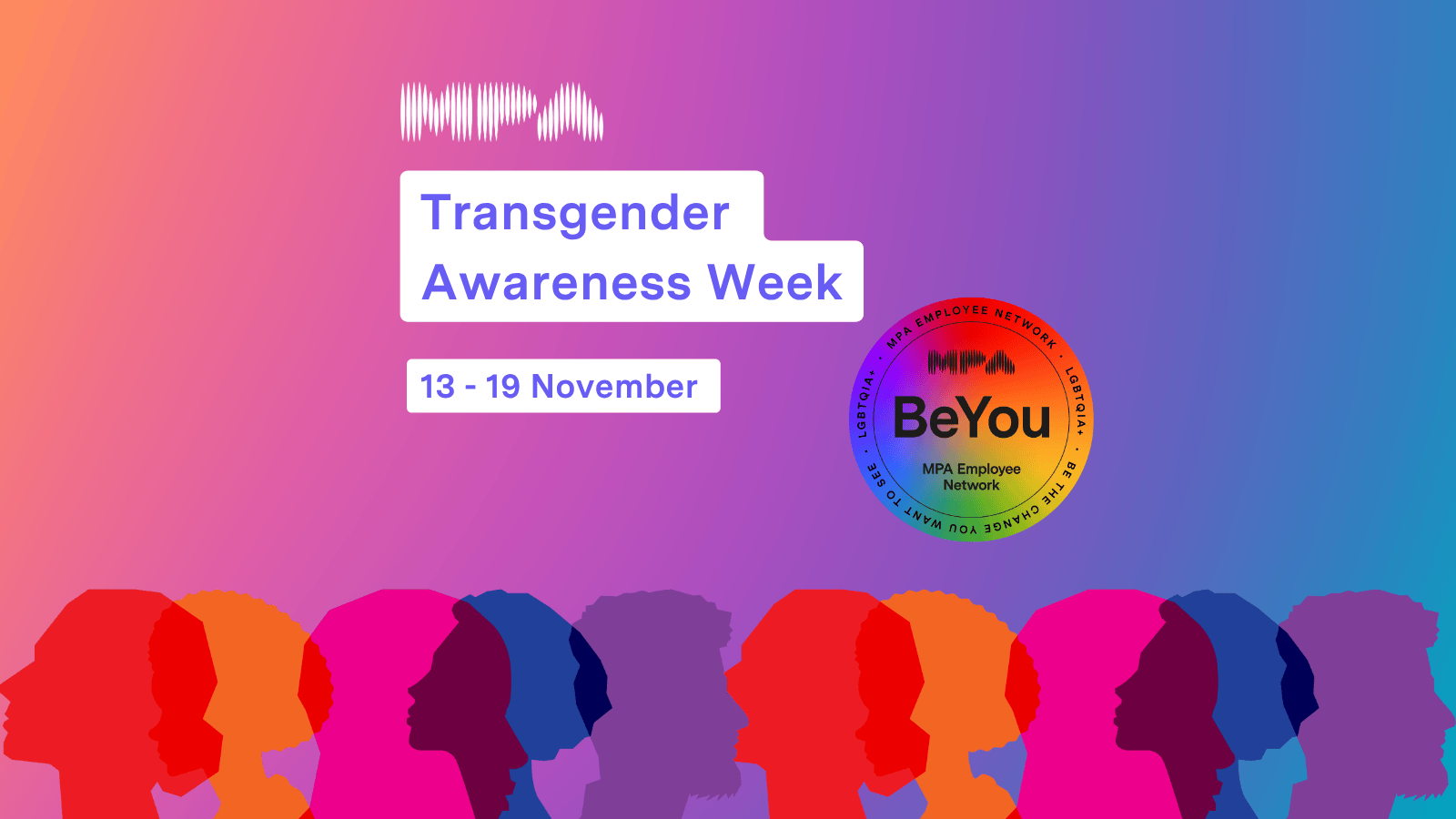Celebrating Transgender Awareness Week

Date
Transgender Awareness Week, observed annually from 13 – 19 November, is a dedicated period to uplift, celebrate, and stand in active solidarity with trans and non-binary individuals in the UK and beyond. This week serves as a platform for education, visibility, and advocacy, culminating in Transgender Day of Remembrance on 20 November. On this day, we honour the lives lost to anti-trans violence and reflect on the ongoing struggles faced by the transgender community.
The roots of Transgender Awareness Week trace back to the late 1990s. In 1999, transgender advocate Gwendolyn Ann Smith founded Transgender Day of Remembrance (TDoR) to honour Rita Hester, a transgender woman who was murdered in 1998. The initial vigil commemorated the first anniversary of Hester’s death and all the transgender people lost to violence that year. This event began the worldwide observance that is now TDoR. The week leading up to TDoR has since become known as Transgender Awareness Week, focusing on raising awareness about transgender issues and advocating for the rights and safety of transgender individuals.
Why Transgender Awareness Week Matters
Trans People Face Risks
Trans and non-binary people, especially those who are Black, disabled, or neurodivergent, are disproportionately affected by hate crimes, mental health challenges, housing insecurity, and employment discrimination.
Media Misinformation Hurts
Increased media hostility has real-world consequences. When public discourse questions the legitimacy of someone’s existence, it creates a culture of fear and exclusion.
Creativity Shouldn’t Cost You Safety
In the music world, trans and non-binary artists are reshaping soundscapes, genres, and scenes. But many face gatekeeping, misgendering, and barriers to safe performance spaces.
Trans Awareness Week invites us to do better to replace performative allyship with meaningful, ongoing action.
How to Support Trans People All Year
Centre Trans Voices
Share and uplift trans content creators, writers, artists, and activists, especially those from multiply marginalised backgrounds. Let trans people define their own narratives.
Respect Names and Pronouns – Always
Use people’s correct names and pronouns without hesitation or performativity. Mistakes happen. So does accountability. Apologise, correct, move on.
Educate Yourself
Don’t wait for trans people to teach you. There are books, workshops, and podcasts readily available. Learning is your responsibility. Google is free.
Challenge Transphobia at Every Level
That includes your workplace, your friendship group, your media consumption, and your government. Silence isn’t neutral. It’s complicity.
Supporting Trans Inclusion in the Workplace
Workplaces, especially in the creative industries, should be places where everyone can show up as their full selves. For trans and non-binary colleagues, inclusion must go beyond rainbow lanyards and diversity statements.
Inclusive Policies
Ensure your HR policies cover gender identity and expression, offer transition-related support, and recognise chosen names and pronouns across all systems.
Facilities and Forms
Use gender-neutral language on forms. Provide gender-neutral toilets. Remove unnecessary gender markers altogether unless legally required.
Staff Training
Mandatory training on trans inclusion and anti-trans discrimination helps normalise respect, not debate. No one’s identity is up for discussion.
Visible Support Networks
Create or support LGBTQ+ employee networks. Ensure there are safe spaces where trans colleagues can connect, influence policy, and be heard.
Representation Matters
Include trans voices across leadership, programming, and public-facing materials, not just when it’s “relevant.”
Trans Voices in the Music Industry
From genre-defying icons to grassroots scene leaders, trans and non-binary individuals have always been integral to music and always will. Yet, their stories have often been overlooked. Visibility matters.
Artists Shaping the Soundscape
Trailblazers like Mykki Blanco, Anohni, and Travis Alabanza are not just performers; they’re cultural critics, visionaries, and architects of a more inclusive sound. Their work challenges norms, amplifies marginalised voices, and redefines what music can represent. In 2023, Kim Petras made history as the first openly transgender artist to reach No. 1 on the Billboard Hot 100 with her song “Unholy,” a collaboration with Sam Smith. This milestone underscores the growing recognition of trans artists in mainstream music.
Backstage Representation
Trans inclusion isn’t just about who’s on stage; it’s about who’s producing, mixing, managing, signing, and scouting. However, representation remains limited. In the UK, 1.7% of music industry professionals identify as transgender, according to the UK Music Diversity Report 2024.
Initiatives like the Trans Charter aim to promote visibility and representation, provide education on trans issues to reduce discrimination, and ensure workplace policies are genuinely inclusive of all gender identities.
Persistent Barriers and Discrimination
Despite progress, significant challenges persist. Over half of transgender musicians report experiencing discrimination based on their gender identity. Additionally, 44% of LGBTQ+ musicians have either witnessed or experienced sexual harassment, with two-thirds of this group stating it has impacted their ability to work or career progression
Trans Awareness Week is a powerful opportunity to learn, reflect, and act. But solidarity is not seasonal. Trans people deserve not just visibility but safety, joy, leadership, and liberation.
Resources
For more information or to join our BeYOU Employee Network, please contact:
Helen Choudhury
Head of DEI, CSR and Wellbeing
[email protected]
Safiyah Olaide
DEI, CSR and Wellness Officer
[email protected]
Share article